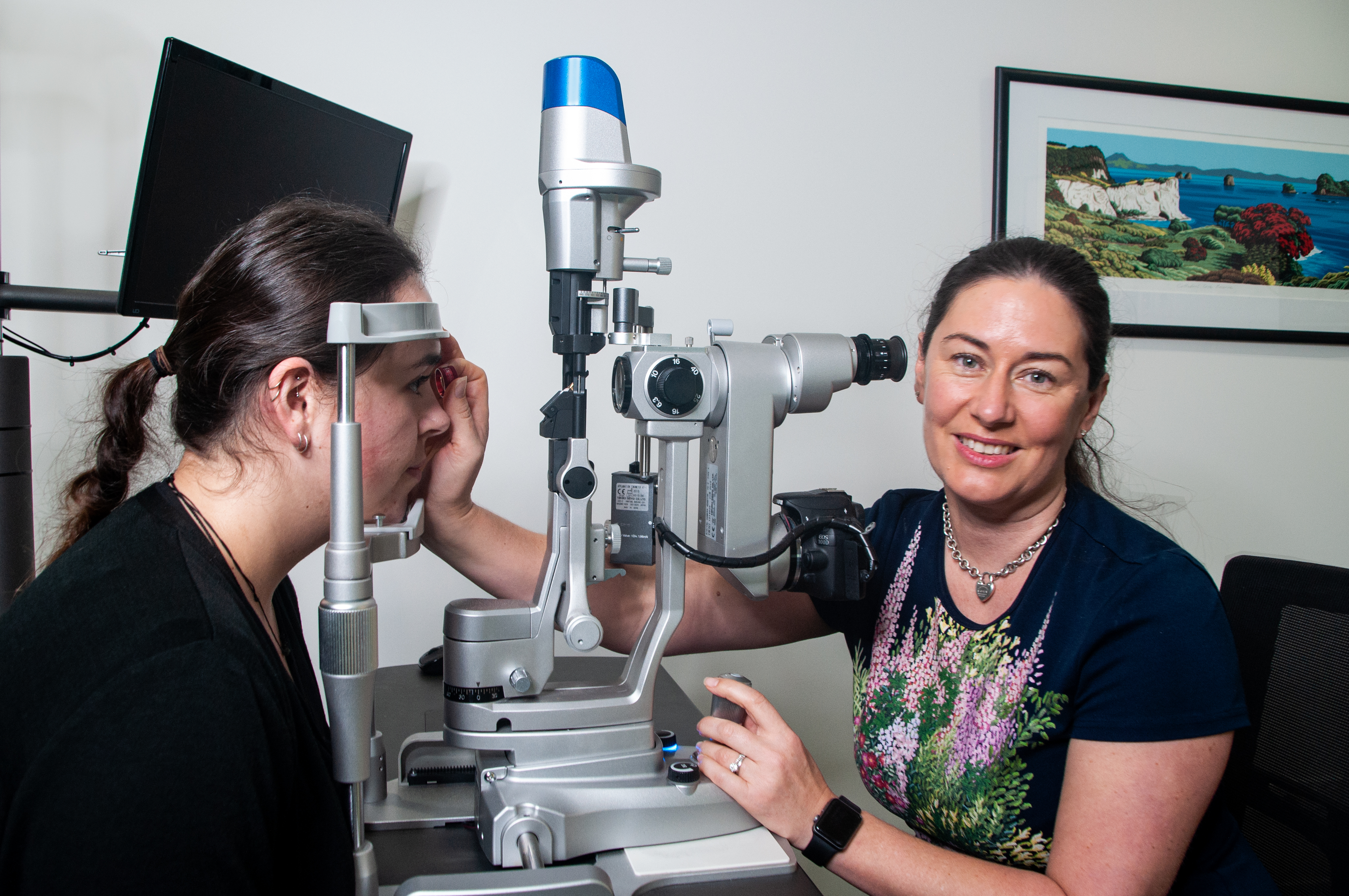Supporting New Zealanders Living with Glaucoma
Helping Kiwis navigate glaucoma with knowledge, community support, and resources that empower people to manage their vision health.

‘Floaters’ is a term used to describes dark shadows that move across your vision and they can take any sort of shape including circle, dots, lines, cobwebs and clouds. These shapes drift about when you move your eyes and appear to dart away when you try to look at them directly.
‘Flashes’ often accompany floaters, which is the term used to describe sparkles or lightning streaks that typically occur in your side or peripheral vision and frequently are visible in a dark setting. Flashes and floaters are common visual sensations seen in the field of vision that appear to be real objects in front of your eye, but in reality, they are changes that are occurring within the eye that create the symptom or sensation of what you are seeing.
Flashes and floaters are very common, in fact, most people will experience them some time in their adult life. The main risk factors for flashes and floaters is the ageing process of the eye itself. By the time we are 60 years old, 25 percent of us would have experienced floaters and this number increases to about 75-80 percent by the time we reach our 80s.
Although flashes and floaters are quite commonly seen in conjunction with ageing in general, there are some risk factors that make certain individuals more likely to experience flashes and floaters. These include being more near-sighted (or myopic), having previous cataract surgery or intraocular surgery, any sort of eye injury or trauma, as well as diabetes or inflammation inside the eye.
When you are young, the jelly-like substance inside your eye (the vitreous) is firmly attached to the back of your eye. As you get older, the vitreous gel may shrink and naturally becomes more liquid and collapses away from the retina. Microscopic fibres within the vitreous tend to clump and can cast tiny shadows on your retina. The shadows you see are called floaters.

Sometimes during the process of the vitreous shrinking, it remains partially attached to the retina, and tugs on it. The resulting movement of the retina’s nerve cells can cause eye flashes.
While eye floaters usually occur due to the normal ageing process, they can also result from other disease or condition including:
While annoying, ordinary eye floaters and spots are very common and usually aren’t a cause for alarm. However, if flashes and floaters occur suddenly, in some cases they can be an indication of harmful change occurring within the eye, that can potentially result in a loss of vision.
For these reasons, contact an eye specialist immediately if you notice:
These painless symptoms could be caused by a retinal tear, with or without a retinal detachment — a sight-threatening condition that requires immediate attention.
To determine the cause of your floaters and flashes, a dilated eye examination of the vitreous (gel-like substance inside your eyes) and the retina of both your eyes is required.
The treatment for floaters and flashes depends on the underlying condition. While not all floaters and flashes are serious, you should always have a medical eye examination by an ophthalmologist to make sure there has been no damage to your retina. Most especially, if your eye floaters impair your vision or are accompanied by frequent eye flashes, eye surgery may be recommended by your ophthalmologist. Treatment options may include:
Surgery to remove the vitreous: On rare occasions, floaters can be so dense and numerous that they can significantly affect vision. In these cases, a vitrectomy, a surgical procedure that removes floaters from the vitreous may be required. This procedure involves removing the vitreous gel from inside the eye, along with the floating debris, which is replaced with a salt solution. Because the vitreous is mostly comprised of water, you will not notice any change between the salt solution and the original vitreous.
Using a laser to disrupt the floaters: In laser therapy, your eye doctor aims a laser at the debris in your vitreous in order to break them up and make them smaller and less apparent.

Although eye floaters and flashes are usually harmless and will occur to most people at least once throughout their lives, if you suffer from flashes in your vision, or a sudden increase in floaters, you should consult an eye doctor to rule out any possible complications. To book an appointment with one of our retinal- specialist ophthalmologists, call us on 0800 25 53 93.

Helping Kiwis navigate glaucoma with knowledge, community support, and resources that empower people to manage their vision health.

We are delighted to celebrate a milestone for Dr Rachael Niederer, who has been promoted to Associate Professor at the University of Auckland.

Let’s explore the science and the wonder behind these tiny but powerful organs.